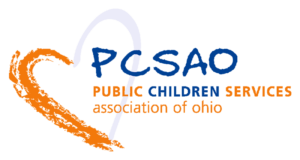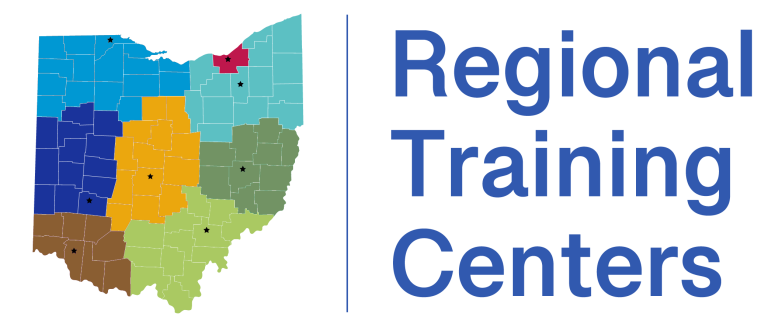Our Mission:
The Ohio Child Welfare Training Program promotes best child welfare practice through skill development, strategic partnerships, and effective advocacy.
Our Vision:
The Ohio Child Welfare Training Program provides the skill mastery needed to help children and families attain safety, permanency, and well-being with intentional inclusivity and respect for diversity.
Our Values:
We value COLLABORATION with those who have shared outcomes.
We value DIVERSITY, EQUITY, and INCLUSION in people, products, and services.
We value RESPONSIVENESS to individual and systemic learning needs as well as changes in populations, technology, and methodology.
We value CONTINUOUS QUALITY IMPROVEMENT with all products and processes.
OCWTP Partner Organizations
Ohio Department of Children and Youth (DCY) has executive authority over the OCWTP and co-chairs the Statewide Steering Committee.
The Public Children Services Association of Ohio (PCSAO) co–chairs the Statewide Steering Committee and advocates for the needs of county child welfare agencies.
Eight Regional Training Centers (RTCs), operated by county public children services agencies, identify and address the training needs of staff and assist in developing, piloting, and evaluating training activities.
Ohio’s University Consortium for Child and Adult Services (OUCCAS), the OCWTP’s current State Training Coordinator, facilitates and coordinates all program activities, develops training curricula and other resources, and provides fiscal administration.





